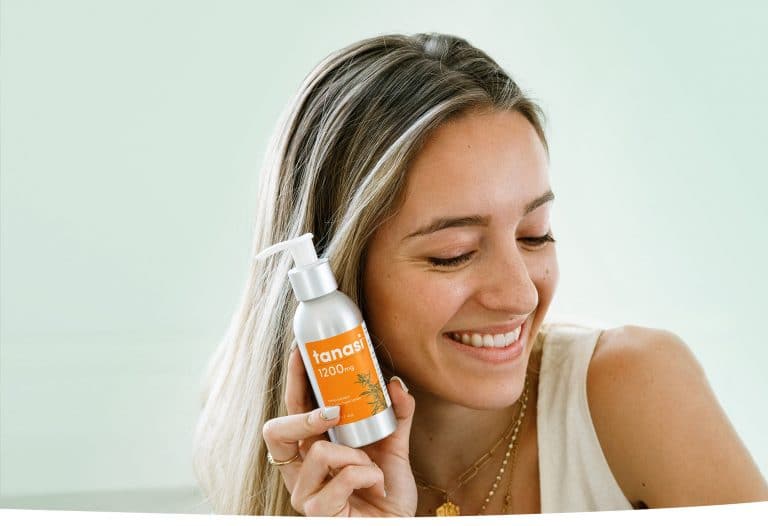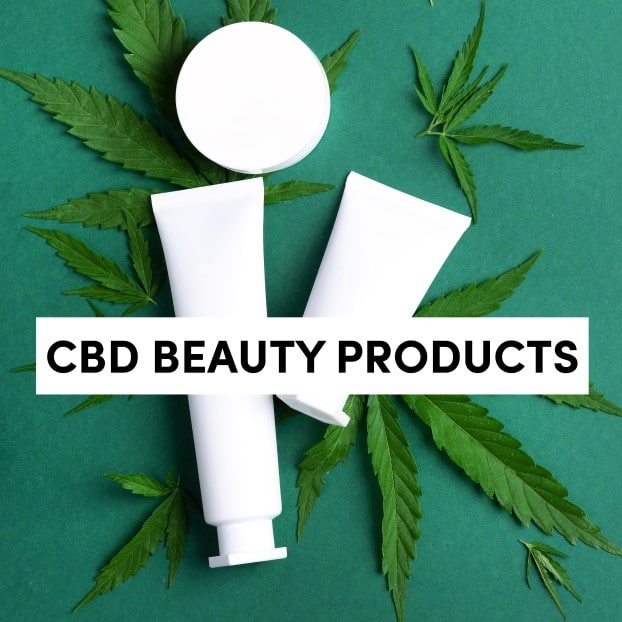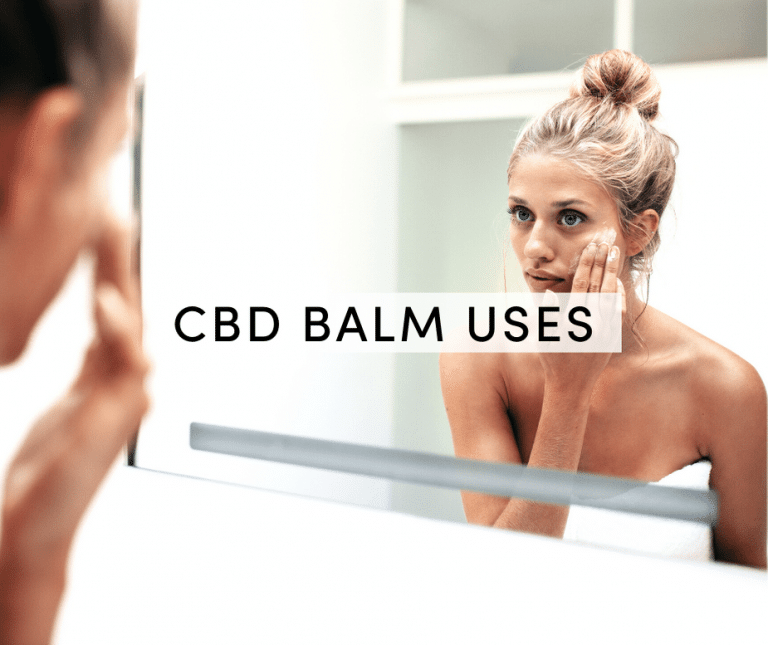CBD Soap, Something You’d Want to Take to the Shower?

Posted on May 27th, 2021
Soap is a cleansing agent made by reacting alkali metal hydroxide and fatty acids. In most cases, the alkali metal hydroxide (the salt) is either potassium hydroxide or sodium hydroxide. Fatty acids (carboxylic acids), on the other hand, come from fats and oils. Reacting these two chemicals at 80°C to 100 °C in a process that goes by the name of ‘saponification’ produces soap.
During this reaction, the alkali metal hydroxide breaks down triglycerides (which also contain the carboxylic acids) into its constituent fatty acids. The process subsequently neutralizes those into salts. This produces soap and glycerin as a byproduct.
When mixed with water, each soap molecule consists of a long hydrocarbon chain often called the ‘tail.’ The tail has a composition of 2 to 22 carbon atoms surrounded and bonded with hydrogen atoms. One end in the chain has a carboxylate ‘head’. When dissolved in water, the potassium or sodium ion detaches from the chain and floats free in the water. This process leaves the head negatively charged.
Why Do We Use Soap?
We use soap to take advantage of its emulsification properties. Soap molecules have both polar and non-polar structures. The long hydrocarbon chain is a non-polar structure and hydrophobic, meaning it does not dissolve into water. The ‘head,’ otherwise known as the salt end of a soap molecule, is actually hydrophilic, or water-soluble, and ionic.
When oil or grease comes into contact with soapy water, the soap works as an emulsifier since it has polar and non-polar properties. As an emulsifier, the dissolved soap allows the oil or grease to attracts and hold onto the dirt to suspend it in water. Furthermore, the soap forms micelles that are able to trap the oil. As such, soap allows the oil-dirt mixture to detach from clothes, hands, or the skin and suspends it, making it possible to wash it away. Thus, resulting in better cleaning and a more efficient cleaning process which most people are now familiar with.
What Is The Chemical Composition Of Soap
The general formula for soap is (RCO2)nMn+. In this chemical formula, R is an alkyl, M is the metal, and represents the cation charge. For toilet soaps, the salt forms by using sodium and potassium.
However, other metals also go into creating industrial soaps, better known as metallic soaps. Metallic soaps such as those created using lithium and calcium are for cleaning purposes but rather as lubricants.
Aside from varying the salts used, manufacturers use different oils in order to make the soaps. The use of different types of oils gives rise to the wide variety of soaps and their varying properties, including:
- African black soaps.
- Vegan soaps/vegetable soaps.
- Marseille soaps.
- Rose soaps.
- Lavender soaps.
- Saltwater soaps.
- Citrus soaps.
- Sandalwood soaps.
- Lava soap.
- Coconut soaps.
- Charcoal soaps, and much more.
Finally, manufactures might incorporate additional compounds into their soaps to create specialized soaps. For instance, soap manufacturers add triclosan or triclocarban in order to make antibacterial soaps.
What Are Cannabinoids
Cannabinoids are a group of compounds naturally occurring in Cannabis Sativa. Scientists managed to identify over 100 cannabinoids so far. Two of the most famous cannabinoids are:
- The delta-9-tetrahydrocannabinol (Δ9-THC), the responsible compound for yielding the signature high associated with marijuana.
- Cannabidiol (CBD) is the second most abundant compound in the cannabis resin extract. In hemp, CBD tends to be more abundant than THC. It also happens to have several therapeutic properties but does not yield a ‘high’ as THC does.
However, as scientists conduct more research into Cannabis Sativa, we are starting to learn more about the other cannabinoids as well, like:
- Cannabigerol (CBG)
- Cannabicyclol (CBL)
- Cannabichromene (CBC)
- Cannabinodiol (CBDL)
- Cannabitriol (CBT)
- Cannabielsoin (CBE)
- and Cannabinol (CBN)
What Is CBD
There is a buzz surrounding CBD owing to a tsunami of online reviews from enthusiasts touting its alleged benefits. The compound now has several suggested applications, some backed by a lot of research, some by scant research but much anecdotal evidence. There’s now an industry built around the compound based on the staggering amount of product that now features it. Also, unlike THC, CBD is not psychoactive and does not alter one’s state of mind making those put off by THC more likely to consider CBD instead. Moreover, according to the World Health Organization, CBD does not exhibit effects of any abuse or dependence potential.
How Does CBD Work?
CBD works by mainly interacting with the endocannabinoid system (ECS). Discovered in the 1990s, our understanding of the endocannabinoid system is still a work-in-progress. However, we know that the system mainly consists of three components that include:
- Enzymes.
- Receptors.
- Naturally occurring cannabinoids, better known as endocannabinoids.
Our bodies are able to naturally produce cannabinoids on their own to which we refer to as endocannabinoids. Anandamide (AEA) and the 2-arachidonoylglyerol are the two identified so far, and, unfortunately, we can only produce a limited amount of them. However, endogenous cannabinoids are strikingly similar to cannabinoids derived from plants like CBD. Thus, we are able to use plant-based cannabinoids in order to supplement our ECS and boost the endocannabinoids’ effect. The primary function of the ECS is to maintain the balance of certain bodily processes through the endocannabinoids. To do so, it triggers the release of chemicals that will yield so positive, even therapeutic, effects in the body.
As for receptors, the endocannabinoid system has two main receptors:
- The CB1 receptors – Receptors found in the central nervous system.
- The CB2 receptors – Receptors found in the peripheral nervous system, including the immune system.
Cannabinoids can bind with either of the receptors. CBD produces specific effects depending on the location of the receptors. For instance, when CBD binds with a CB1 receptor in the nervous system, it might relieve pain.
Enzymes, which are crucial for maintaining the proper levels of cannabinoids in the body, work to break down the endocannabinoids. However, through mechanisms yet to be fully understood, CBD might also delay them from breaking down your own endocannabinoids. Thus, prolonging the positive effect, the yield on you.
Effects Of CBD
The effects of CBD depend on the part of the body and system that CBD interacts with. For instance, when CBD interacts with the limbic system, your overall mood may shift towards relaxation. On the other hand, if it interacts with the mesolimbic pathway, it may affect your pain perception.
Research shows CBD to have a positive effect in treating epilepsy. Additionally, research is ongoing on the positive effects of CBD in treating anxiety, stress, diabetes, acne, and other skin conditions.
On the other hand, while CBD is well-tolerated, it can cause side effects. The adverse side effects range from diarrhea, dry mouth, fatigue, reduced appetite to drowsiness. That said, it’s important to note that these only seem to happen if they consumed excessive amounts of CBD.
CBD Soap, Is It A Thing?
In a nutshell, yes. CBD soap is a thing. As mentioned above, manufacturers make soap by reacting alkali metal hydroxide with fatty acid. As such, you can replace the typical oils used to manufacture mass-market soaps with CBD oils.
CBD oil is, more often than not, comes from hemp through carbon dioxide extraction. The pure, full-spectrum CBD oil is what goes into manufacturing CBD soaps.
Alternatively, some manufacturers add CBD oil as a part ingredient. Instead of using full-spectrum CBD oil for making soaps, they simply add CBD oil into melted soap after the saponification process.
This infusion process creates CBD-infused soaps. However, those are still rich in omega-3 and omega-6 fatty acids without incorporating CBD oil in the entire soap-making process. CBD-infused soaps are a seamless way to incorporating CBD into a product you already use daily.
How Is CBD Soap Better Than Regular Soap?
While all soaps act as a cleansing agent, their chemical makeup determines the soap’s overall characteristics. Some soaps are more moisturizing, while others are harsh.
In the case of CBD oil, it is exceptionally effective at rejuvenating the skin. Aside from cleaning your hands like regular soap, CBD oil goes a step further by providing extra skincare. For starters, your skin has its own cannabinoid receptors within the dermal layer. As such, your skin can absorb CBD and reap the skin-related, potential therapeutic benefits of CBD.
CBD soaps might be better for your skin as they still do the regular soap’s job, yet, also add the benefits of CBD to the skin.
Does CBD Soap Yield Any of The Specific Benefits Of CBD?
Once absorbed by the skin’s endocannabinoid system, the CBD yields its anti-inflammatory properties, alleviating redness, rashes, dryness, irritations, or even sores. CBD soaps can also help deal with acne, just as CBD creams do. CBD soap may also help somewhat mitigate psoriasis and eczema to an extent. Finally, it contains all-natural products, so there’s little risk of man-made contaminants reaching you by using them.
Can You Use CBD Soap with Sensitive Skin?
In the face of it, everyone can use CBD soap with little issue. However, there are nuances as to who should use CBD soaps and which soaps to use. First and foremost, you should refrain from using CBD soaps in the rare case that you react badly to them. If you notice any rash-like reaction after using them, stop.
Secondly, it is essential to use CBD soaps that only use natural ingredients. Soaps that use harsh chemicals will affect your skin negatively, even when infused with CBD oil. With this in mind, if you have susceptible skin, make sure the CBD soaps have only all-natural ingredients on the ingredient list.
Finally, when you decide to try CBD soaps, make sure the soap features lab-tested CBD oil. CBD oil should comply with the legal THC limit. As such, a good soap should use CBD oil that does not have more than 0.3% THC, and the lab test will prove that’s the case.
If what you are looking for are CBD products of the highest quality, visit Tanasi’s shop to find lab-tested, carefully formulated, and effective CBD.

Related Posts in CBD Skin Benefits

Sep 4 2021
Here’s Why CBD Lotion for Acne Could Help Your Skin
Read More →
Sep 2 2021
CBD Beauty Supplies – Can CBD Help You Look Fabulous?
Read More →
May 27 2021
CBD Soap, Something You’d Want to Take to the Shower?
Read More →
Apr 18 2021

